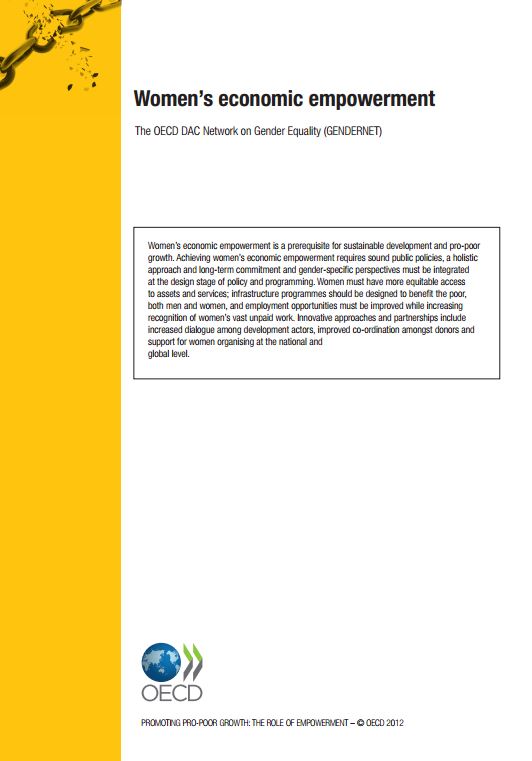2011 | OECD

Women’s economic empowerment is a prerequisite for sustainable development and pro-poor growth. Achieving women’s economic empowerment requires sound public policies, a holistic approach and long-term commitment and gender-specific perspectives must be integrated at the design stage of policy and programming. Women must have more equitable access to assets and services; infrastructure programmes should be designed to benefit the poor, both men and women, and employment opportunities must be improved while increasing recognition of women’s vast unpaid work. Innovative approaches and partnerships include increased dialogue among development actors, improved co-ordination amongst donors and support for women organising at the national and global level.

1621 North Kent Street, Ste 900,
Arlington, VA, 22209
P 202.534.1400
F 703.276.1433
Website Photos: © mari matsuri
